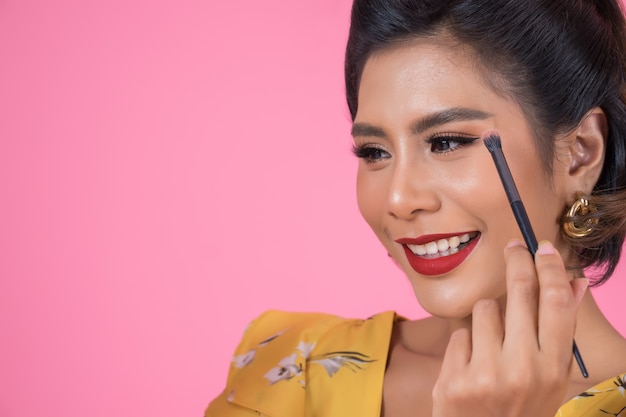
Makeup is something people use on their skin or nails for decoration or to hide imperfections. In movies, makeup can transform actors into zombies or aliens, but in everyday life, it’s mostly used to create the appearance of flawless skin. People often use makeup to cover up things like freckles, shine, pale eyelashes, or dark circles. It can make skin look smooth and healthy, even if it isn’t.
For many, wearing makeup is a personal ritual that boosts confidence and attractiveness. It’s also a social activity. However, cosmetics can contain a mix of ingredients, some of which might be harmful. Since many people use makeup daily, there’s a risk of absorbing these substances through the skin or inhaling them. Some chemicals in makeup have been linked to serious health issues, including cancer, while others might cause allergies. With growing awareness, “natural” makeup options are becoming more popular, as they tend to avoid harmful chemicals.
Despite the risks, many young women feel they can’t go without makeup. A bit of powder, lip gloss, and eyeliner are part of their daily routine. This reliance on makeup can lead to the belief that one can’t look good without it. Some, like 25-year-old Ambreen Irfan, even avoid going out if they don’t have their makeup. She believes in looking perfect from head to toe when stepping out.
Unfortunately, the negative effects of makeup aren’t limited to skin issues. Excessive use can lead to various health problems. Products like lipsticks and eyeshadows may contain lead, which is harmful to the nervous system and can cause high blood pressure, allergies, and fertility issues. Other dangerous substances include mercury and parabens, which are preservatives that can promote cancer cell growth.
Makeup can also affect the skin in several ways:
– Oily Appearance: Oil-based products can make skin look greasy and cause makeup to smudge. It’s better to use water-based foundations and loose powders, especially for oily skin.
– Dryness: Some foundations and powders can dry out the skin, making it flaky and dull. To prevent this, use a moisturizer before applying makeup and choose hydrating products.
– Clogged Pores and Acne: While makeup doesn’t cause acne, it can worsen it by clogging pores. It’s best to use non-acnegenic or noncomedogenic products.
– Allergies: Ingredients like fragrances and preservatives can trigger allergic reactions. Be cautious of parabens and formaldehyde, which can irritate the skin and eyes.
There are alternatives to makeup that can enhance skin health. The oil cleansing method, using natural oils, can leave skin soft and balanced. Natural scrubs and microdermabrasion can also improve skin appearance. A healthy diet is crucial for skin health, and supplements like fermented cod liver oil, gelatin, and magnesium can make a significant difference. Eating fruits daily also benefits the skin.
Remember, maintaining good health is essential. Stay healthy!